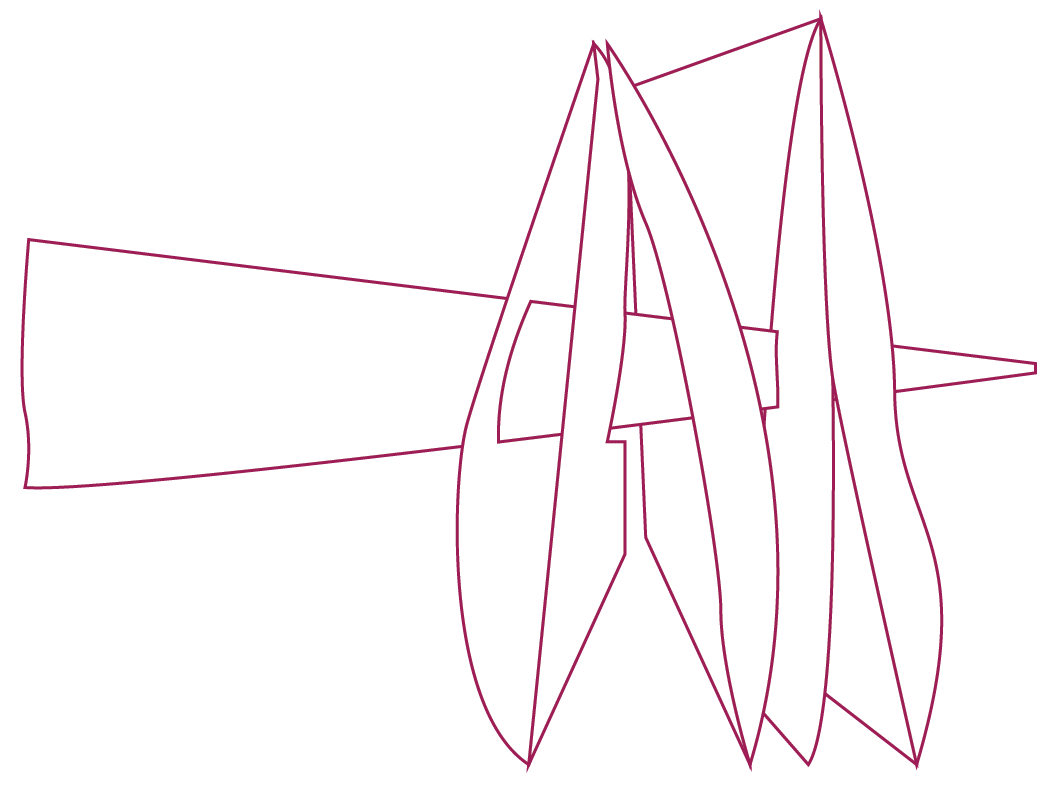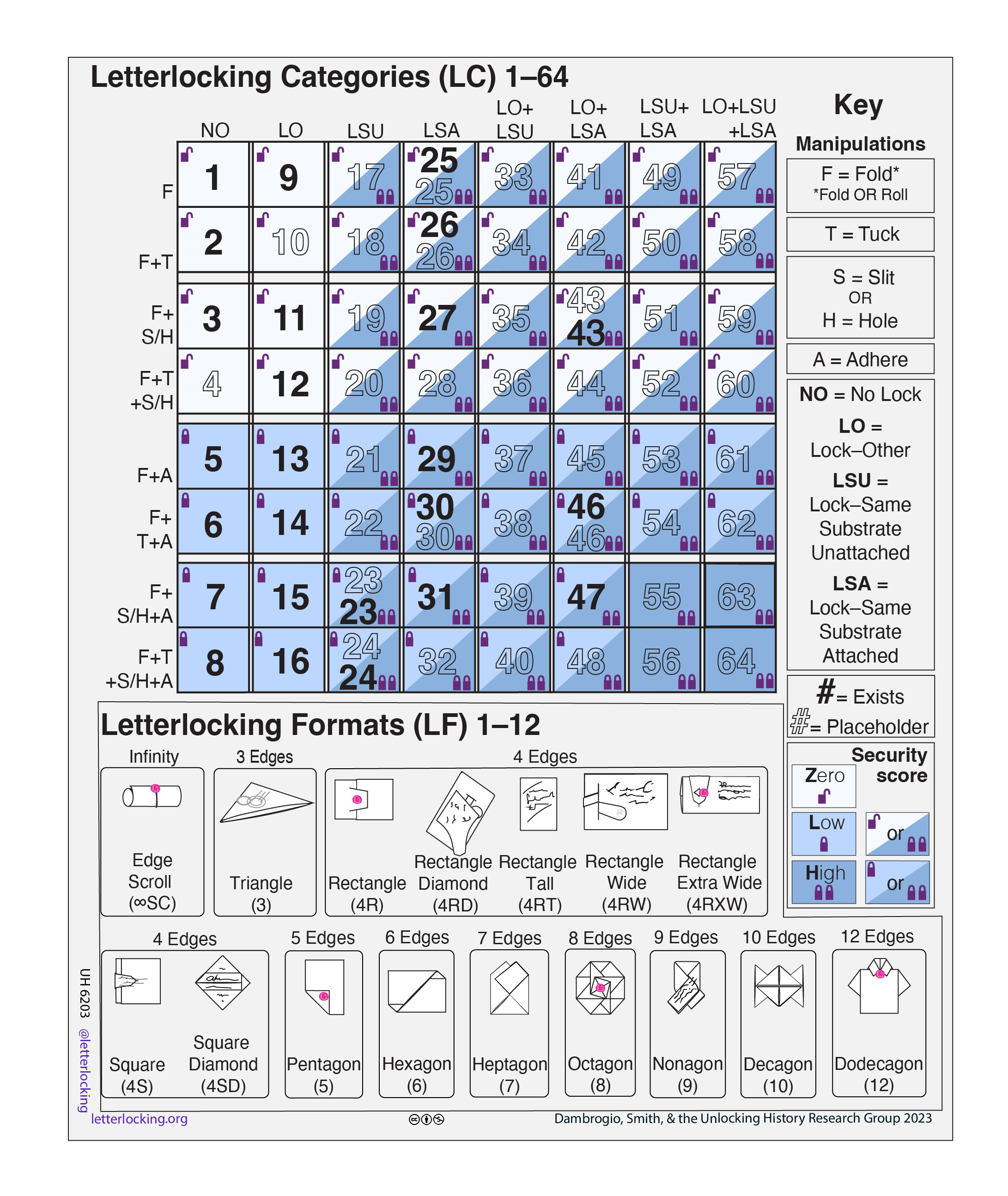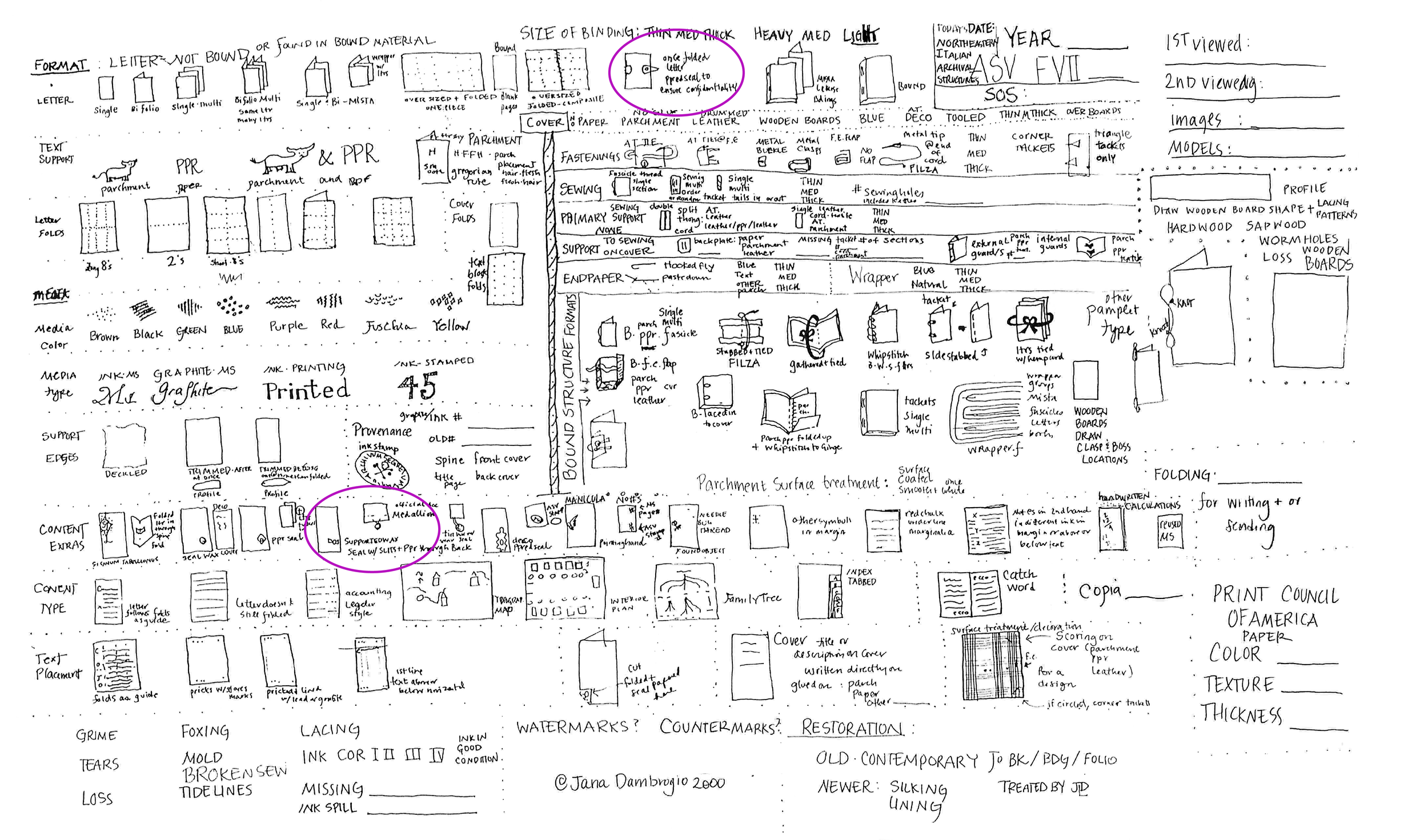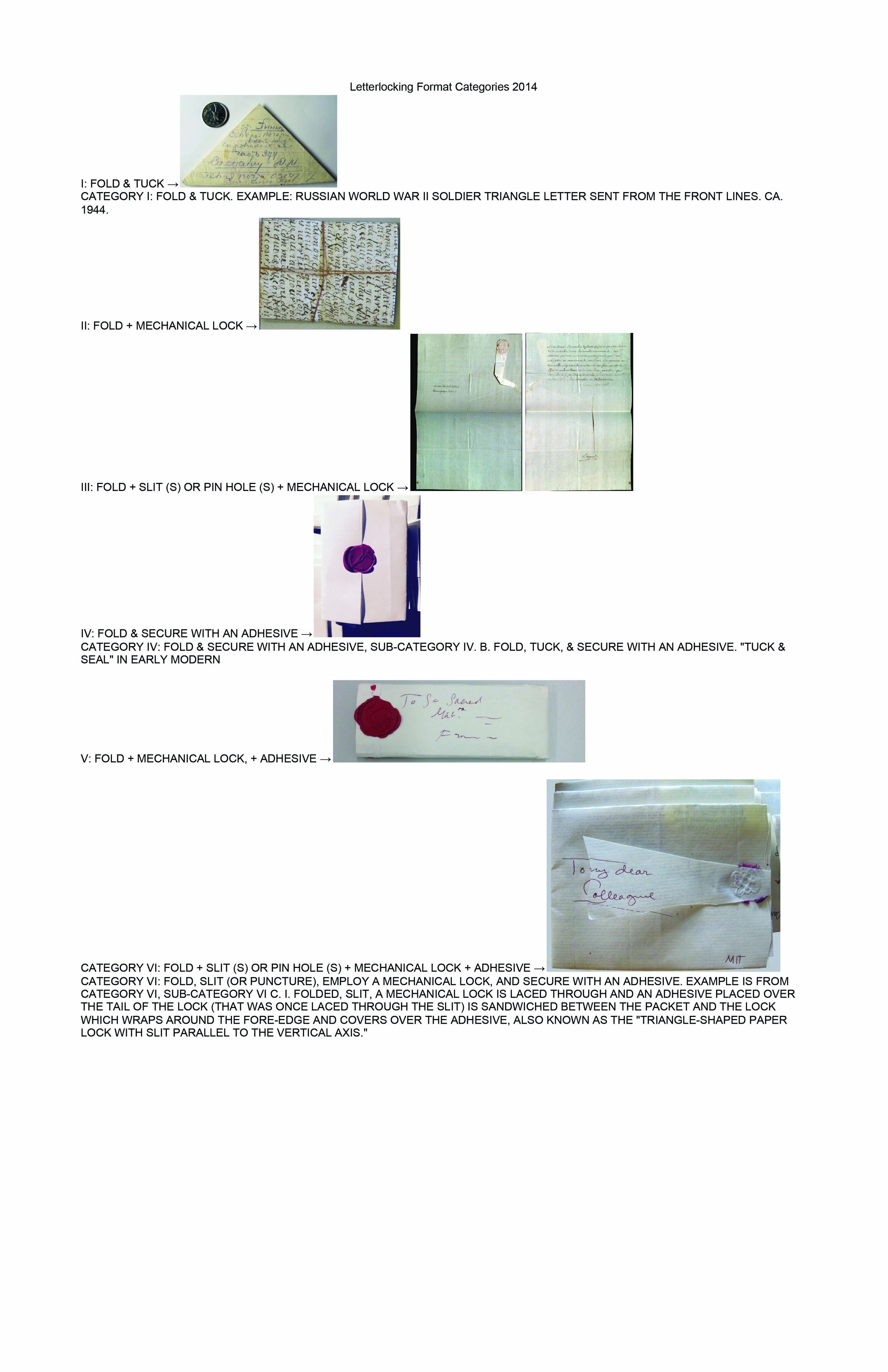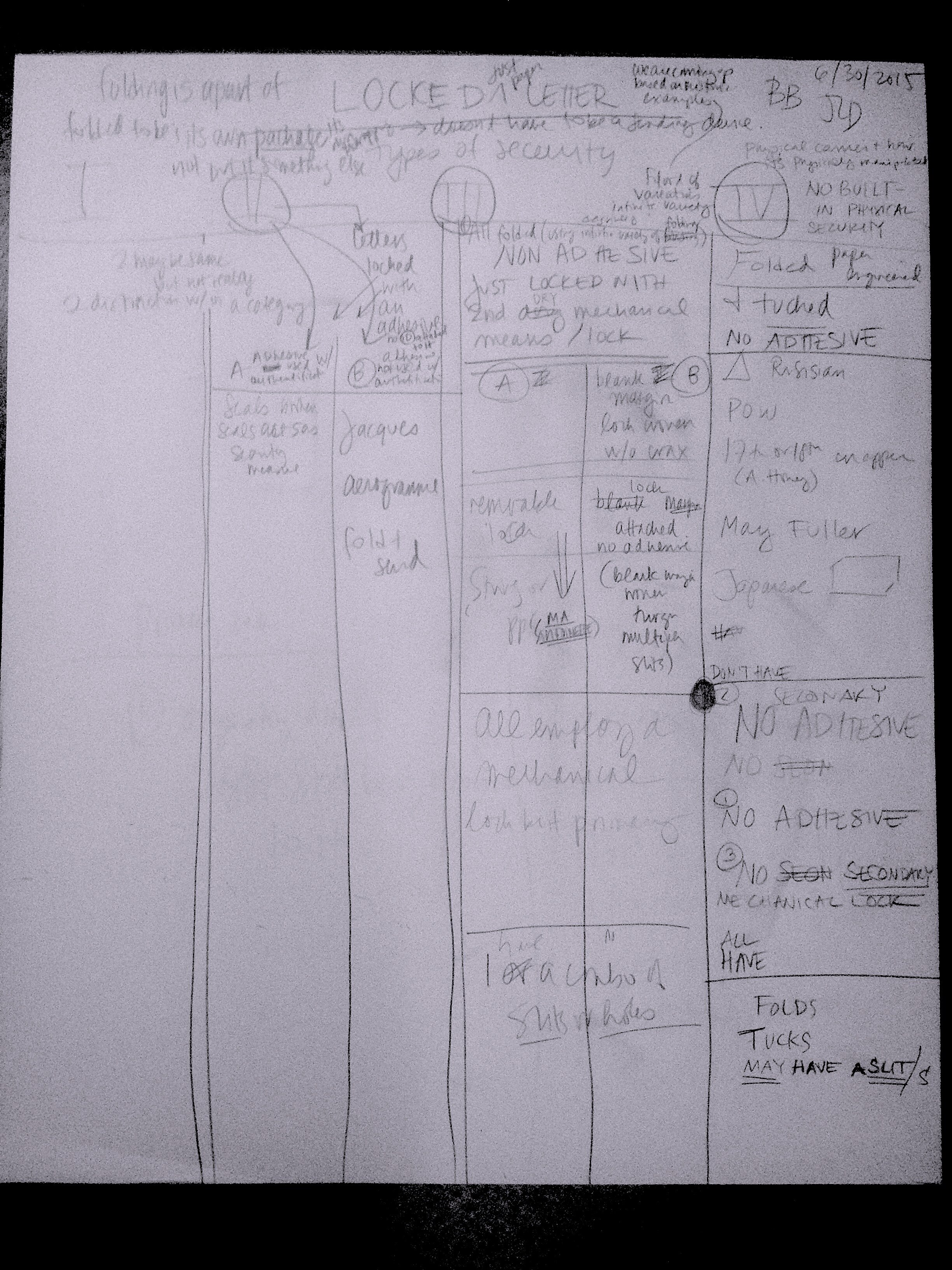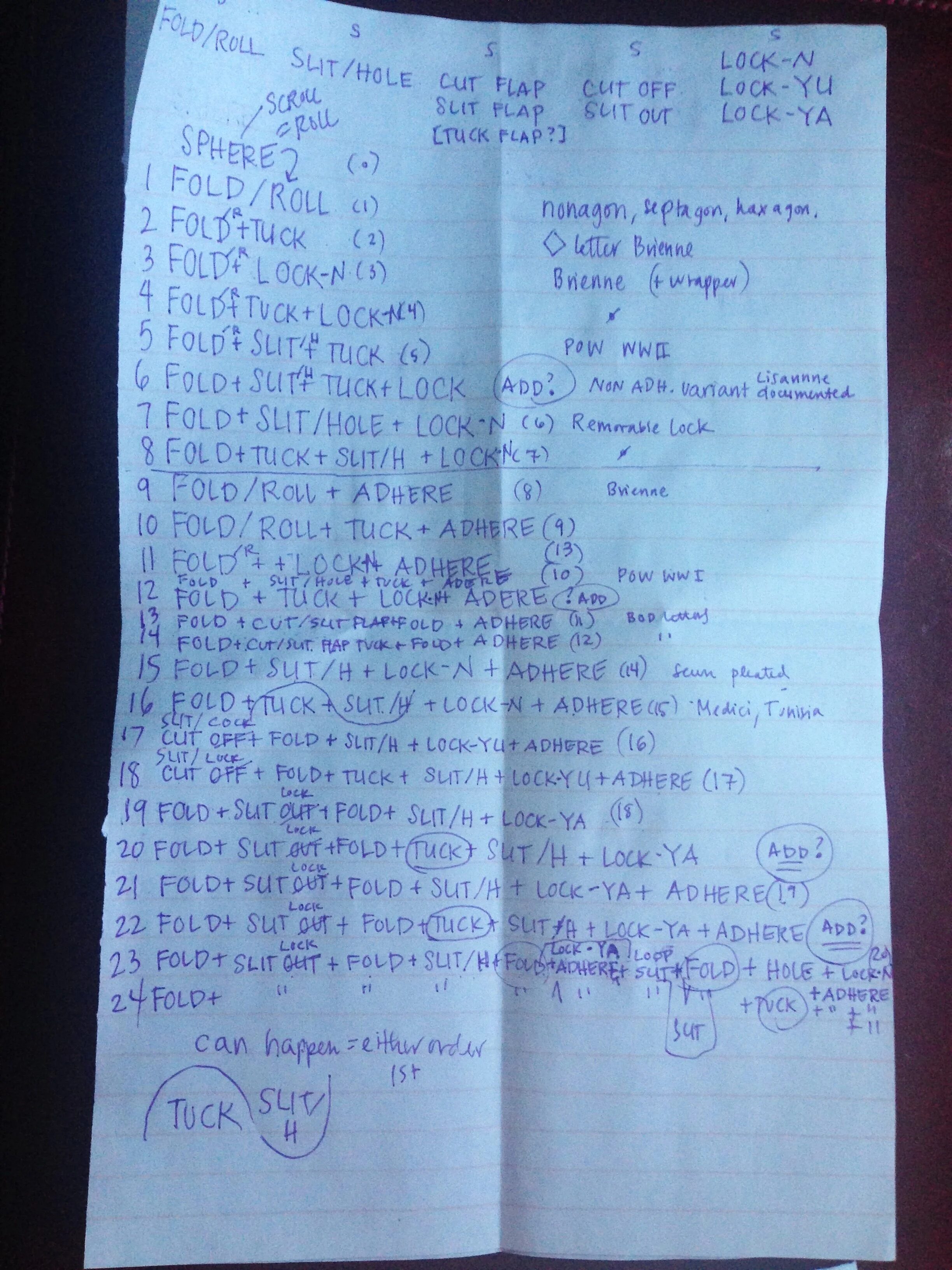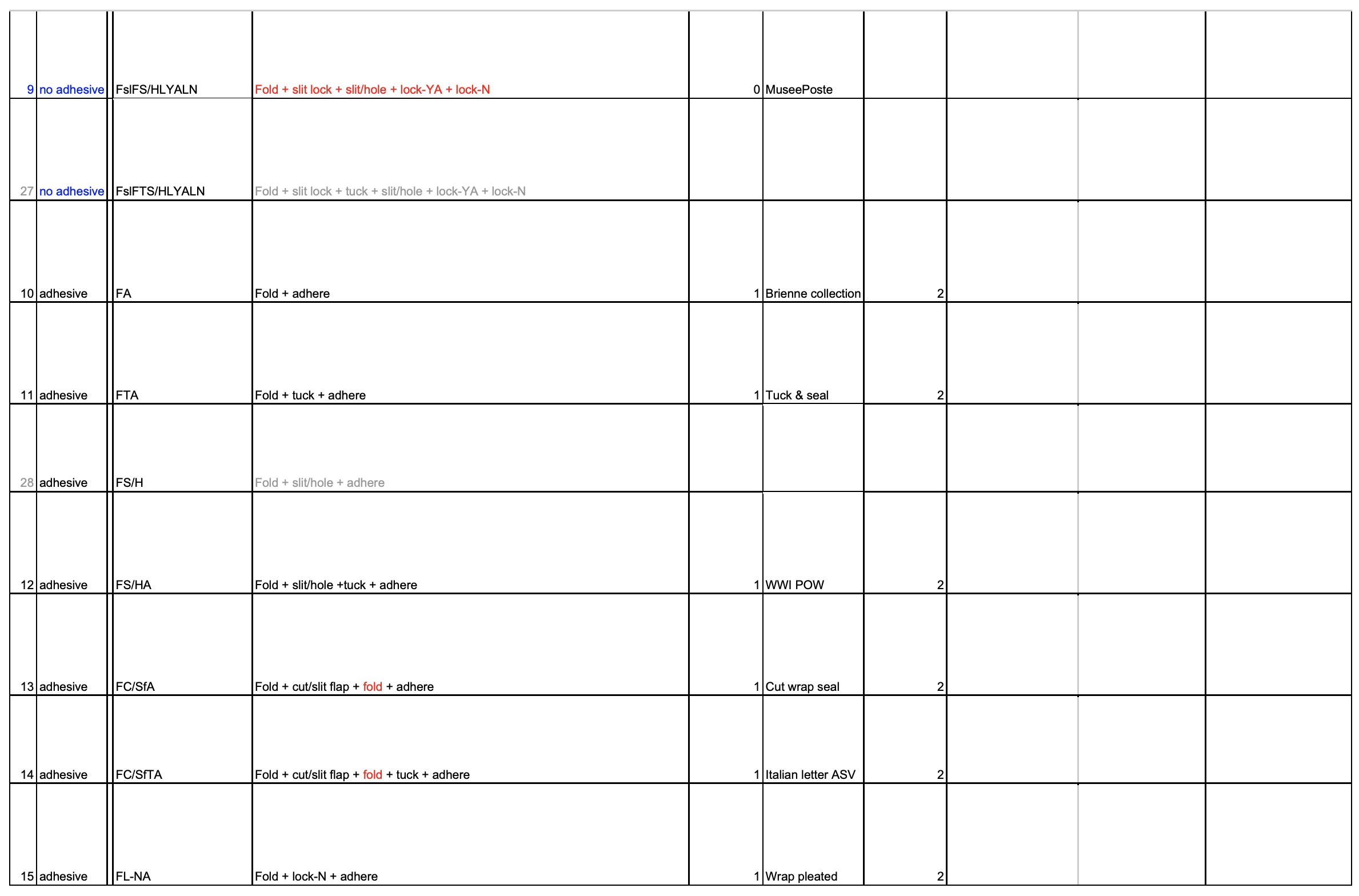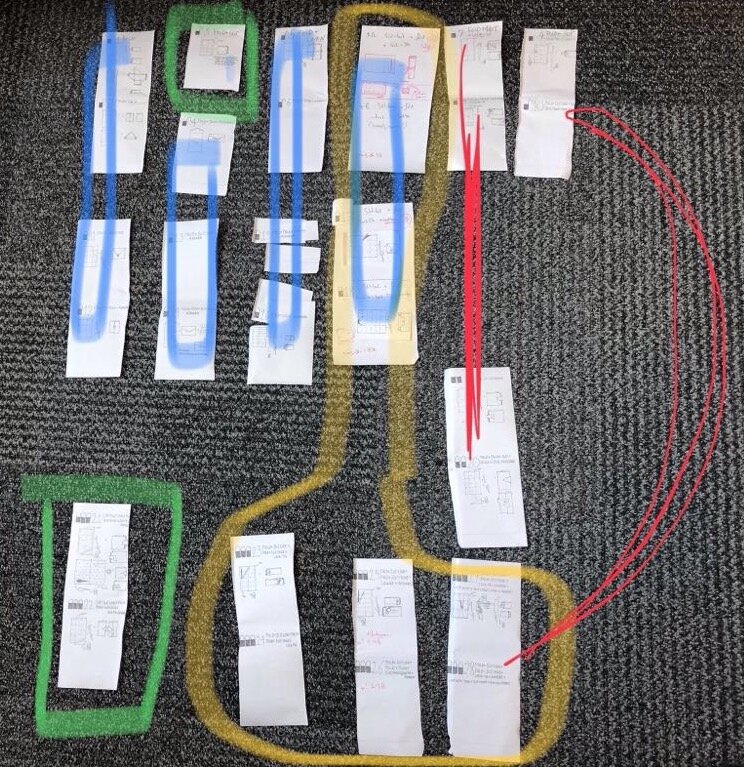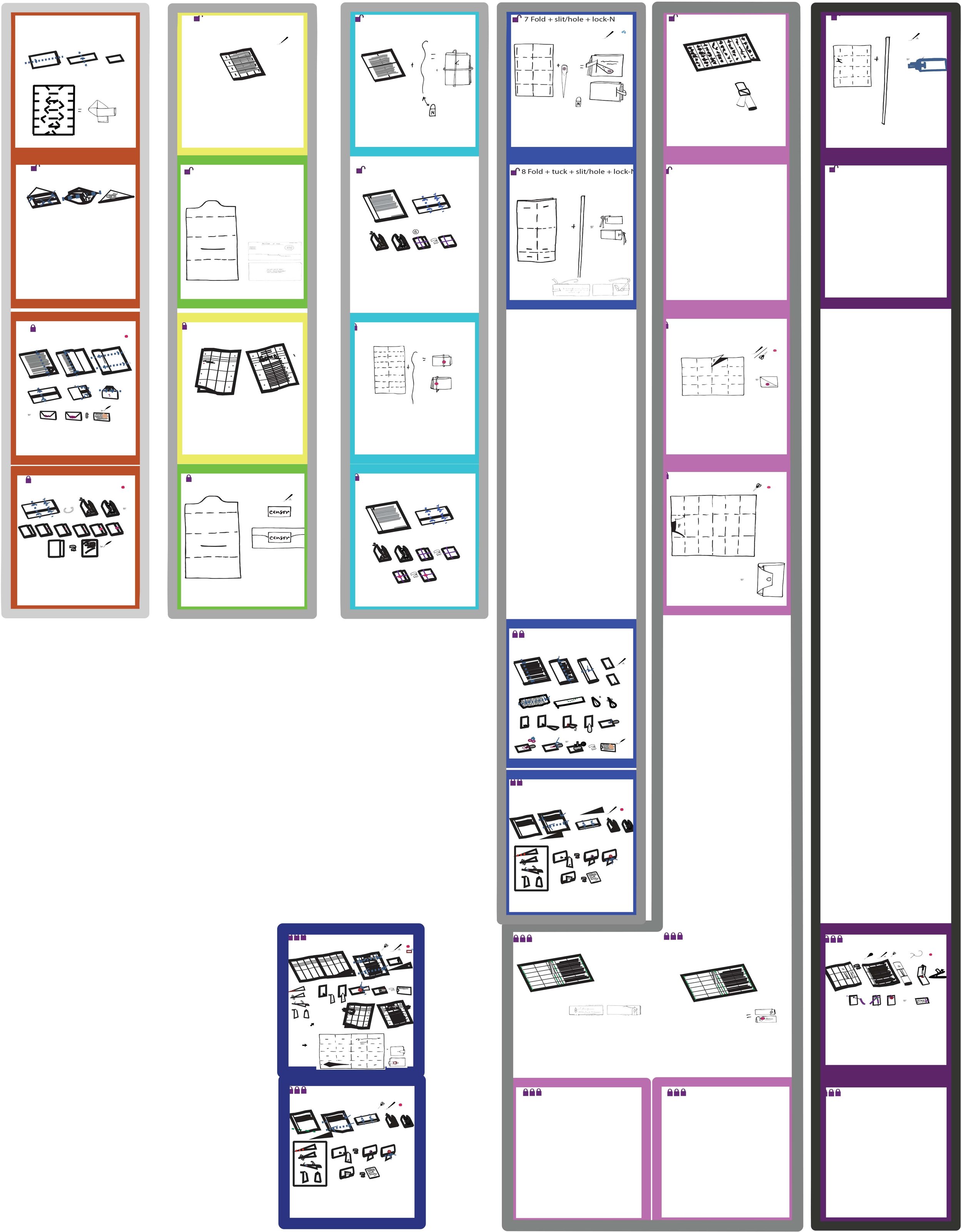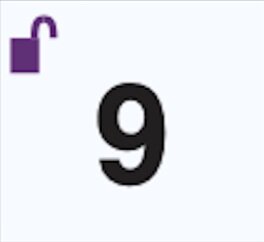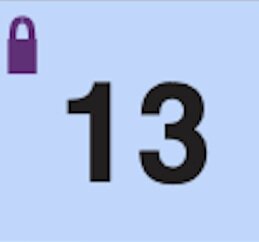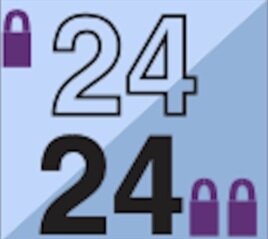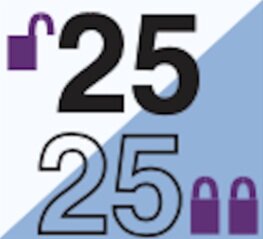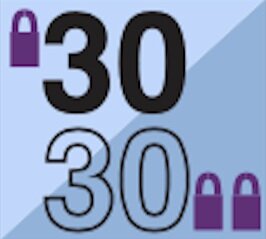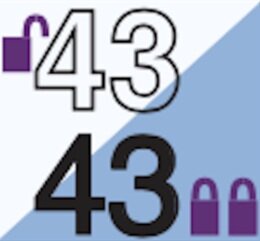UH0127, address side, opened letter. Courtesy of Musée de la Poste, MO6048.
A letterlocking category is a distinct class of locked letters defined by the unique combination of physical manipulations used to transform a writing substrate into a letterpacket.
Letterlocking category numbers (LC#s) are assigned based on which manipulations appear to have been applied to the letterpacket. The letterlocking categories chart shows the 64 categories, based on all possible manipulation combinations. Unlocking History has assigned a category number to each historic letterpacket we have encountered, but we have not encountered examples of all categories. In the chart, block numbers indicate that historic examples have been encountered, while outline numbers represent hypotheticals.
Category is used to assign security score to a letterpacket.
Distinguished from category variation, which accounts for the specific order and frequency of manipulations used.
The Evolution of the Letterlocking Categories and Formats Chart 2000–2025
Note: Letters may default to a category based on the manipulation evidence present. For example, letters may default to a category eight, although our research has no known examples. Based on the manipulations present, letters missing their lock evidence may fall into this category.
Citation
Jana Dambrogio, Daniel Starza Smith, and the Unlocking History Research Team. 2016–. Dictionary of Letterlocking (DoLL). “Categories”. Last updated: 26 July 2024. Date accessed: [Date]. Abbreviated on this page: (DoLL 2024). All images except when noted are courtesy of the Unlocking History Research Group archive, MC0760, MIT Libraries.
Fold





Fold + Tuck









Fold + Slit/Hole
Fold + Adhere














Fold + Tuck + Adhere

















Fold + Slit/Hole + Adhere
Fold + Slit/Hole + Tuck + Adhere
One Lock
Lock-O
Lock-O = a material cut from a substrate other than then the letter-packet and used to secure it shut
Fold + Lock-O
Fold + Slit/Hole + Lock-O
Fold + Tuck + Slit/Hole + Lock-O
Fold + Lock-O + Adhere





Category: Fold + tuck + adhere. Format: rectangle-wide. Nickname: Rectangle Inside.
Fold + Tuck + Lock-O + Adhere
Fold + Slit/Hole + Lock-O + Adhere















Fold + Tuck + Slit/Hole + Lock-O + Adhere





Fold + Slit/Hole + Lock-SU + Adhere








Fold + Tuck + Slit/hole + Lock-SU + Adhere

Lock-SA
Lock-SA is slit out of the actual epistolary writing substrate (e.g., paper), and remains attached while it secures the packet shut
Fold + Lock-SA
Fold + Slit/Hole + Lock-SA







Fold + Lock-SA + Adhere



Fold + Tuck + Lock-SA + Adhere

Fold + Slit/Hole + Lock-SA + Adhere



Two locks
Lock-O + Lock-SA
Fold + Slit/Hole + Lock-O + Lock-SA

Fold + Slit/Hole + Lock-O + Lock-SA +Adhere

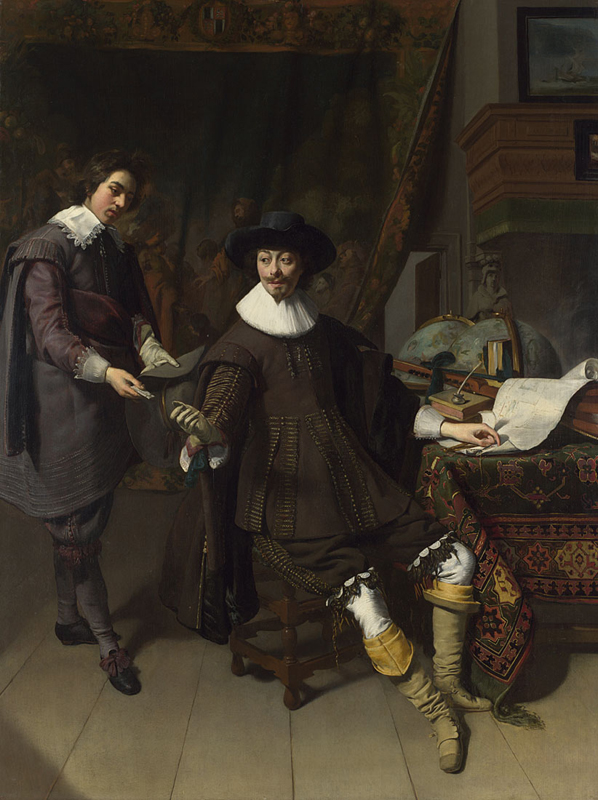
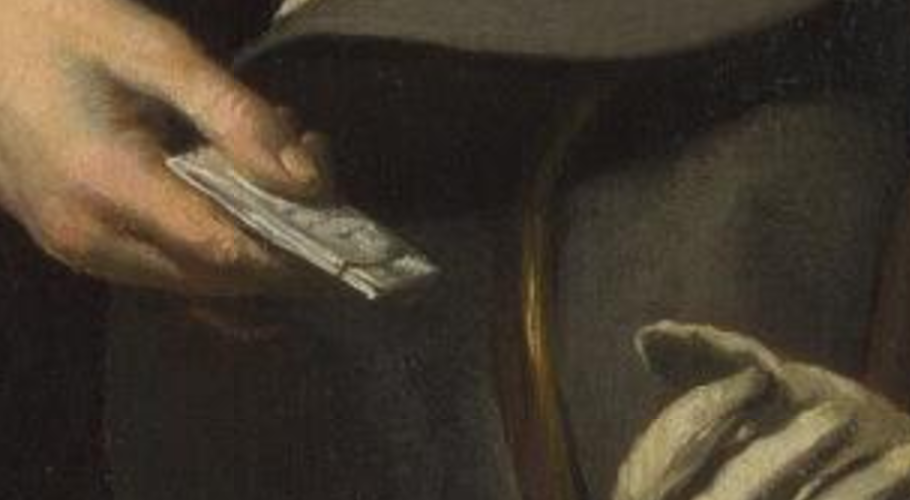
Document Locking
Mesopotamian Clay Bullae, 10,000 B.C.E. (assumed construction)
Format: Document Security. Closed format: Sphere.
Document Security: folded contract or document in a textile bag
Fold + Textile envelope. Format: Document security. Closed format: Rectangle.
Two-part locked document later sewn into a fascicle
Letterlocking, document security, An example of letterlocking category 'fold + cut/slit flap + tuck + adhere' variation is bound into a "gathered and tied" binding with other letters that are not letterlocked, but rather have document security features built into them. Check out the corner folding traditions that continue into the 21st century. In the background are ca. 150 simulacra (detailed models of specific bindings and letters) found in the Vatican Secret Archives. They are modelled after the (record group) Fondo Veneto Sezione II, where letterlocking was discovered in 2000.
Filza-simple
Filza
